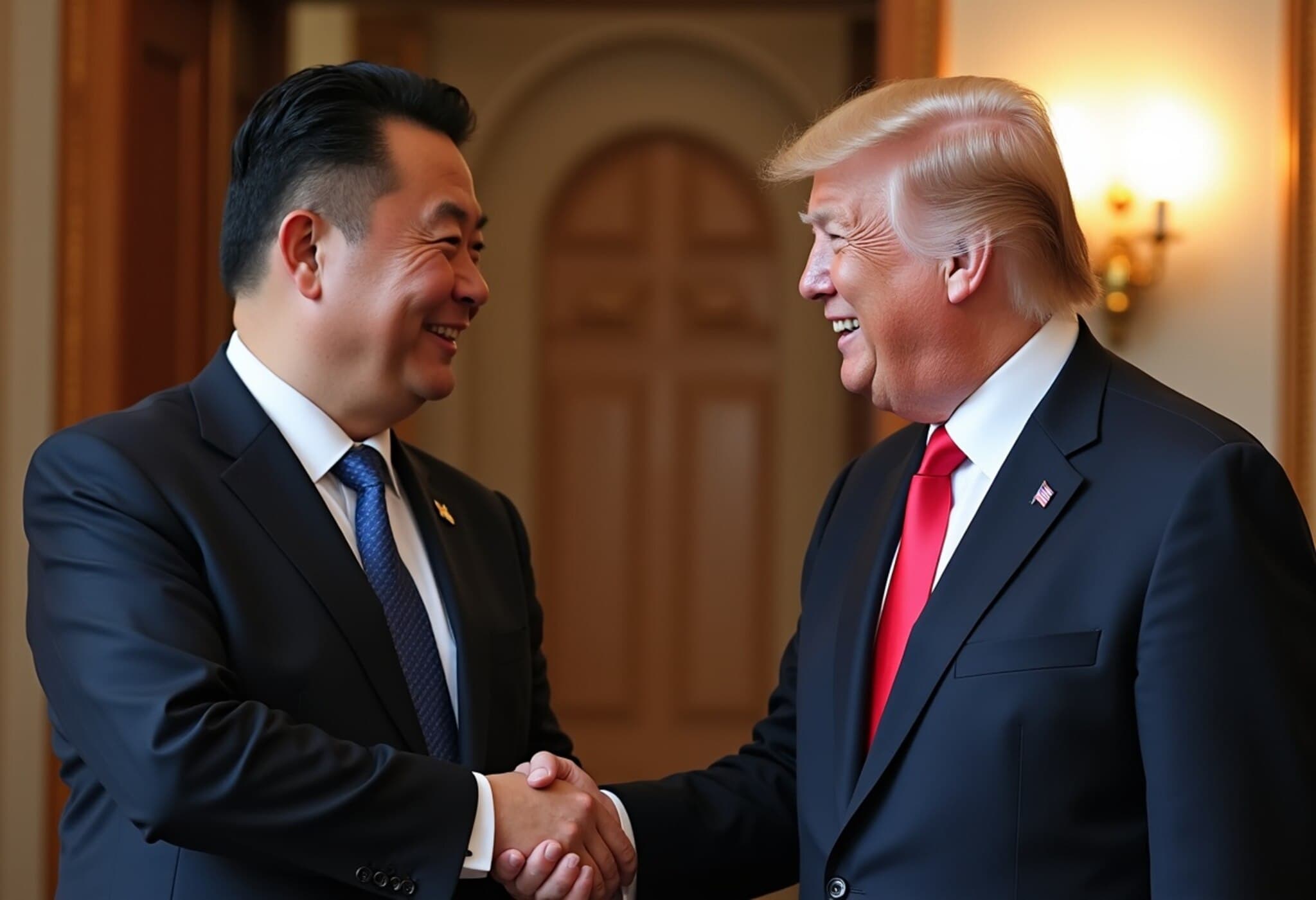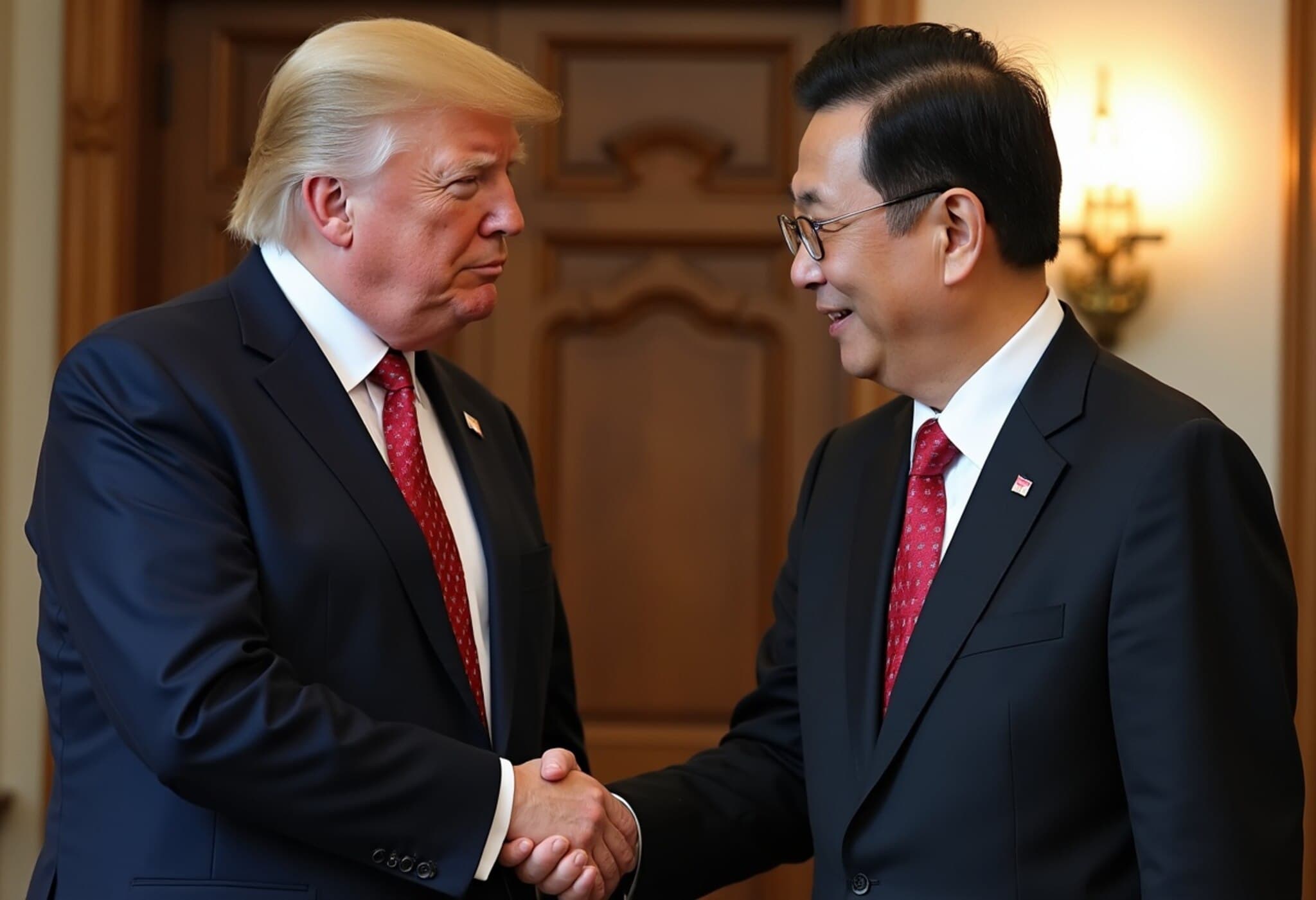South Korea Delays Decision on Google’s Map Data Export Request
In a development that underscores the complex interplay of national security and international digital commerce, South Korea has postponed a decision on Google's bid to export its map data outside the country for an additional 60 days. This move comes amid mounting pressure from the United States ahead of a potential high-level summit between the two nations.
Background: A Contentious Issue Rooted in Security
South Korea’s government, through its Ministry of Land, Infrastructure, and Transport’s National Geographic Information Institute, cited persistent security concerns as the rationale behind delaying the authorization. The government worries that permitting Google to export map data might risk exposing sensitive locations, including military installations, a particularly sensitive issue given the peninsula’s unresolved tensions following the Korean War (1950-53).
Historically, Google — owned by Alphabet Inc. — has faced hurdles in South Korea regarding map data usage. Previous requests in 2007 and 2016 were also denied over similar security apprehensions, reflecting the cautious stance Seoul has maintained towards geospatial data governance.
The U.S. Perspective: Trade and Technology Lobbying
From Washington’s viewpoint, South Korea’s restrictions on cross-border data flows are seen as a form of non-tariff trade barrier, hindering the ability of American tech giants like Google and Apple to effectively operate navigation services in the lucrative South Korean market. U.S. trade officials have flagged these limitations as part of broader trade discussions aimed at promoting open data and technology flows.
Notably, these ongoing talks concluded a trade agreement late July, setting the stage for an anticipated summit between leaders from both countries. However, it remains uncertain whether South Korea’s map data export issue will be explicitly addressed during the summit.
Google's Position: Striking a Balance Amid Regulation
Google asserts that its mapping data, which is publicly accessible and widely used by businesses, has already undergone government security evaluations with no issues detected. Nonetheless, the company is actively engaging with South Korean authorities to explore additional security protocols.
Among the proposals discussed are the potential purchase of blurred satellite imagery through government-approved local partners to ease security concerns while maintaining functional map services. Google also emphasizes how the current restrictions negatively impact the navigation experience, particularly for foreign visitors who rely heavily on Google Maps.
Broader Implications for Tech, Security, and Diplomacy
- National Security vs. Digital Innovation: South Korea’s cautious approach reflects a broader global challenge—balancing sovereign security interests with the economic and societal benefits of digital openness.
- Geopolitical Context: The Korean Peninsula’s unique security environment — with North Korea's unpredictable provocations — necessitates stringent controls over sensitive geospatial data.
- Trade Negotiations: The dispute also raises critical questions about how security concerns can be respected without providing a cover for protectionism in bilateral and multilateral trade frameworks.
- Impact on Consumers and Businesses: Restrictions limit the quality of navigation services, affecting not only tourists but also local businesses that depend on accurate map data for logistics, delivery, and customer access.
Expert Insight
According to policy analyst Dr. Hana Lee, "South Korea’s firm stance highlights the real-world complexity at the intersection of digital sovereignty and global commerce. While security is paramount, overly rigid controls risk isolating the country technologically and economically. The ongoing dialogue between Seoul and Washington could potentially pioneer frameworks for secure yet open data exchange."
What Lies Ahead?
Transport Minister Kim Yoon-duk has emphasized the need for "very cautious" deliberation, prioritizing defense and public safety over trade pressures. As the 60-day delay unfolds, observers will closely watch whether South Korea can chart a path that safeguards its national interests while integrating more fully into the global digital economy.
The outcome will not only influence U.S.-South Korea relations but also send ripples across global debates on data sovereignty and cross-border technology governance.
Editor’s Note
This evolving issue between South Korea and Google crystalizes the delicate balance modern states must strike between protecting national security and fostering an open digital ecosystem. The stakes are high—not just for corporate tech giants and governments, but for everyday users who depend on seamless, reliable mapping services. As geopolitical tensions and digital trade disputes intensify worldwide, this case offers valuable lessons on the challenges of governing sensitive data in an interconnected world.



















